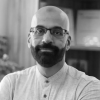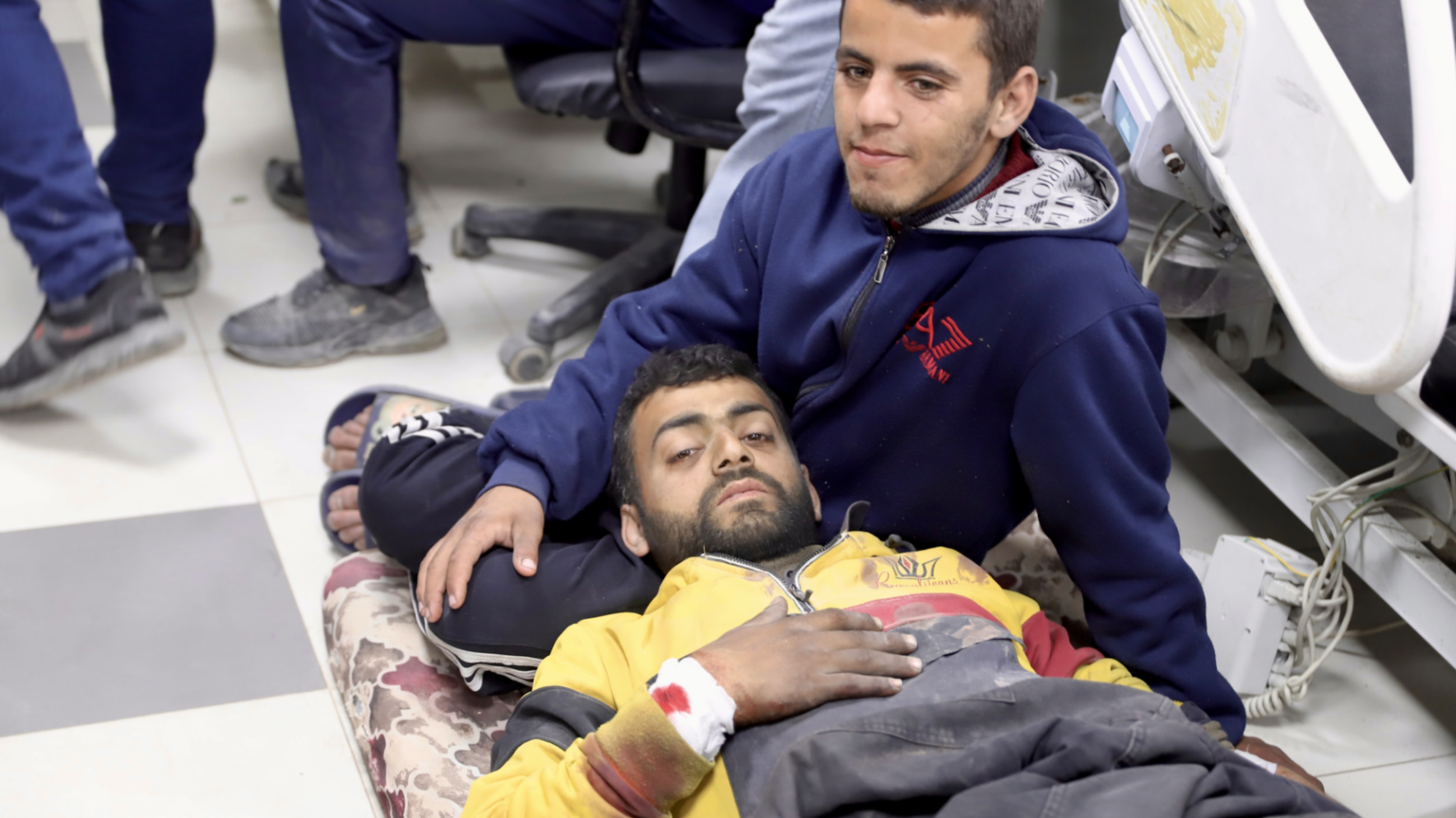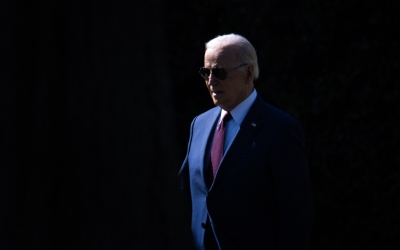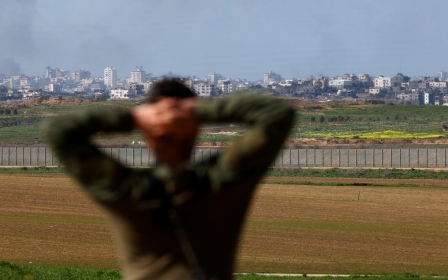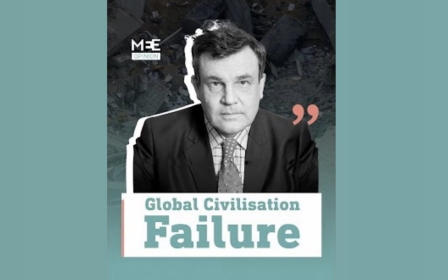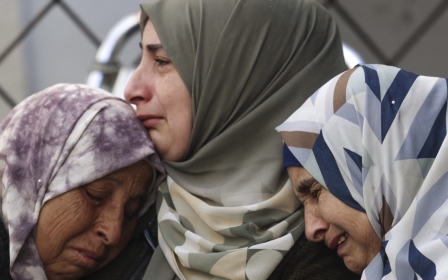War on Gaza: Israel's food-queue slaughter cannot go unpunished
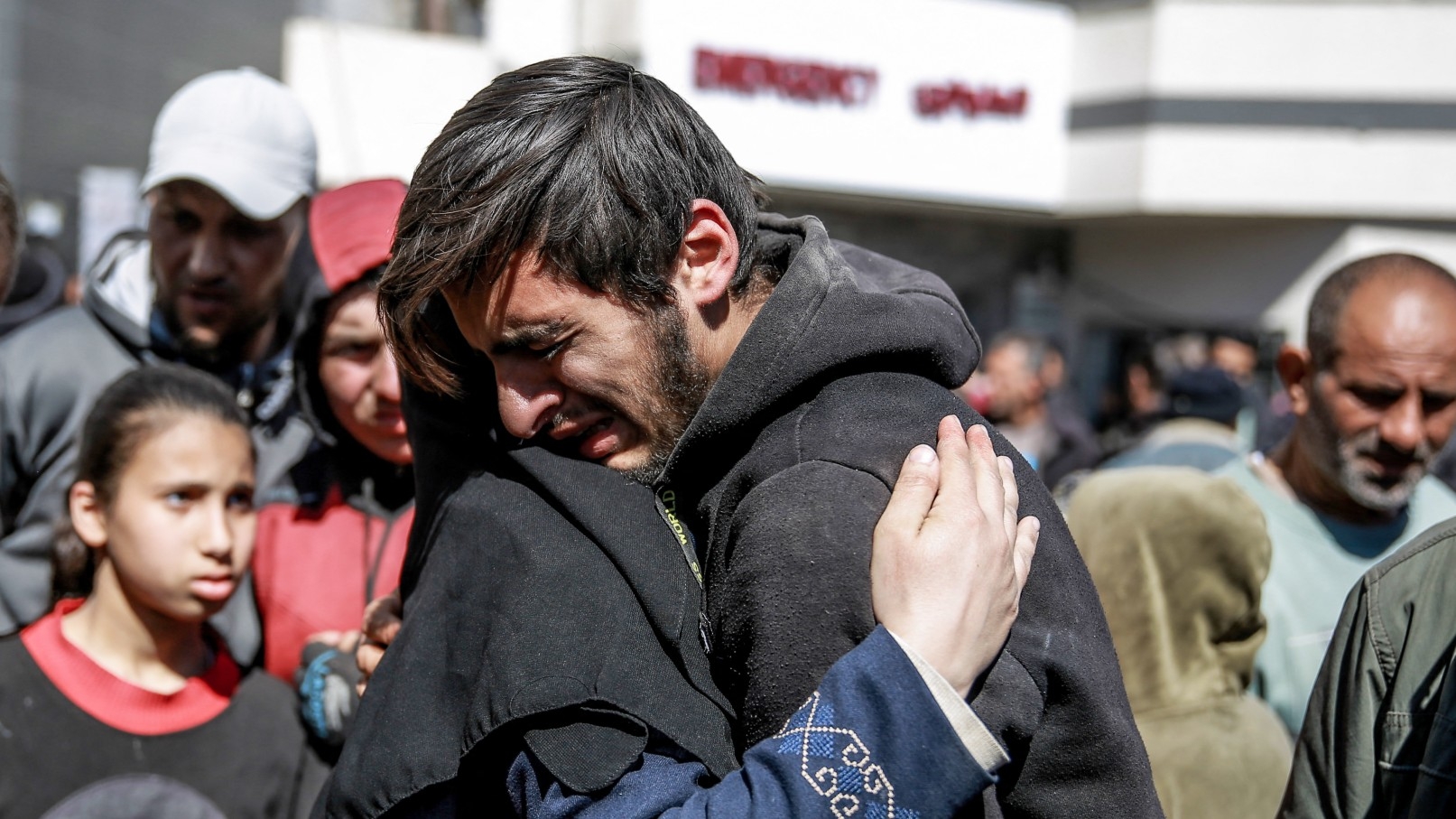
If hungry people in Ukraine had been shot at and killed while queuing for food, the West would have rightly called it a war crime.
Likewise, if troops opened fire in Syria, the US and UK would rightly condemn it as another atrocity committed in this context.
However, when people are queuing for food in Gaza - where the UN has warned of the worst famine it has ever recorded - the US instead noted it would "complicate peace talks".
Early on 29 February, starving Palestinians were queueing for long-awaited deliveries of food in Gaza City’s al-Rasheed Street when Israeli forces opened fire on them. According to Gaza health officials, a minimum of 112 people were killed and 280 injured, the majority of whom appear to have been shot.
Fares Afana, head of the ambulance service at Gaza's Kamal Adwan Hospital, said medics found “dozens or hundreds” of bodies lying on the ground once they reached the scene. He said some wounded had to be carried to hospitals on donkey carts as there were not enough ambulances to take all the dead and wounded.
New MEE newsletter: Jerusalem Dispatch
Sign up to get the latest insights and analysis on Israel-Palestine, alongside Turkey Unpacked and other MEE newsletters
There are counterclaims that only a small group were fired upon and the majority were killed in the crush from the resulting panic - caused by the shooting. Either way, people would not have died if desperately hungry people had not been fired upon while queuing for food.
Inhumanity at its worst
This is a war crime and a crime against humanity.
There is not one single document that sets out international humanitarian law (IHL) and international human rights law (IHRL), but a series of internationally recognised treaties, customs, conventions and standards.
In every iteration of these, it is made unequivocally clear that people in conflict must be allowed to receive aid, aid distributions must not be targeted by military action and civilians must not be targeted by military action.
Follow Middle East Eye's live coverage of the Israel-Palestine war
The West cannot morally continue to shy away from highlighting violations of the rights of people impacted by conflict, whether it is in Ukraine, Syria, or, as it was on Thursday, in Gaza.
Another violation of IHL and IHRL is when a military actor stops a population from receiving the basic human right of food, causing widespread hunger and starvation.
This is another accusation that has been made during the ongoing assault on Gaza, not least by the UN special rapporteur on the right to food. Is it not even more cruel and heartbreaking that people in Gaza, driven to record levels of hunger so they queue en masse for any food aid so as not to die of starvation, are shot at and killed while queuing?
As someone who for decades has been working in humanitarian emergencies and conflicts, while at the same time witnessing inhumanity at its worst, I am not sure I have seen a more horrendous atrocity committed in my lifetime.
There is no way to look at Thursday’s events without calling it what it is - a war crime and a crime against humanity. And the simple reason it is not being called what it is, is political. However, there is nothing political about the killing of innocent civilians.
Rafah incursion
The US secretary of defence himself has confirmed that over 25,000 women and children have been killed thus far in Palestine, in just five months.
On 10 March, many people around the globe will celebrate Mother’s Day - yet in Gaza, so many children have lost their mothers and so many mothers have lost their children due to this brutal conflict.
Another milestone is the start of the holy month of Ramadan, a time when the majority of Gazans will fast, pray and take part in spiritual reflection, self-improvement and devotion.
However, Benny Gantz, an Israeli war cabinet member, has warned that Rafah could face a ground incursion at the start of Ramadan, which the entire world - including Israel's partners in Washington - have warned against due to the likelihood of widespread civilian casualties.
If this comes to pass, the horrors of Thursday will be repeated again and again. One of the most densely populated areas of the world will become a theatre of war, which will mean more civilian deaths and life-destroying injuries.
If firing upon starving people queuing for food goes unchallenged and unpunished by the international community, what incentive is there for military actors to spare civilian lives in a ground assault on Rafah?
Why are governments around the world still supplying the arms to Israel to carry out these suspected atrocities instead of giving money to aid human life in Gaza?
For those of us observing Ramadan this year, and those of us who are not, we must support the people of Gaza all we can and we must pray for an end to the atrocities committed against them.
We must also pray that parties who have committed violations of international humanitarian and human rights law will be brought to account.
If they are not, what is to stop military actors from abusing civilian populations like this in all future conflicts across the world?
These injustices need addressing - not just for the people of Gaza, but for all humanity.
The views expressed in this article belong to the author and do not necessarily reflect the editorial policy of Middle East Eye.
Middle East Eye delivers independent and unrivalled coverage and analysis of the Middle East, North Africa and beyond. To learn more about republishing this content and the associated fees, please fill out this form. More about MEE can be found here.


